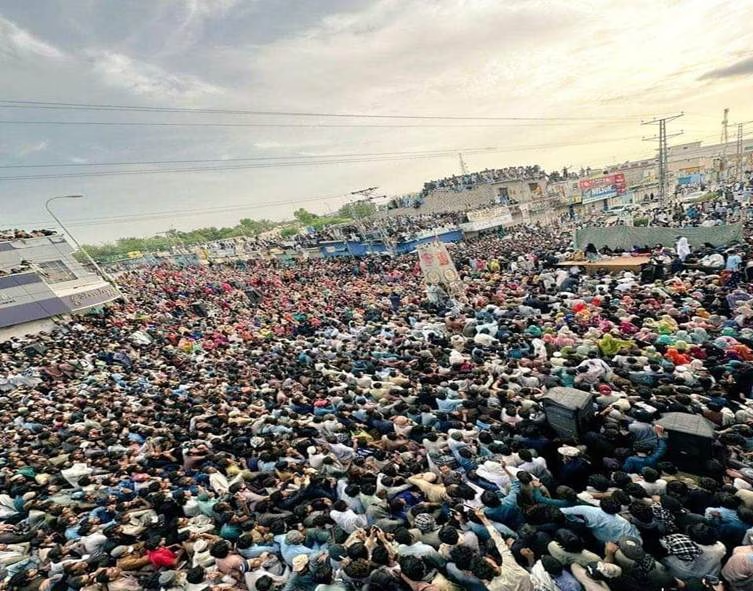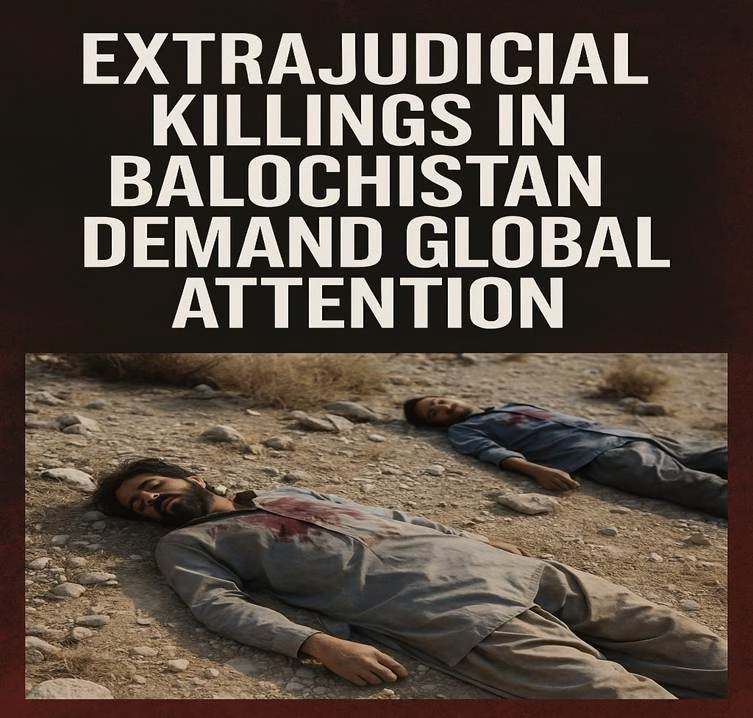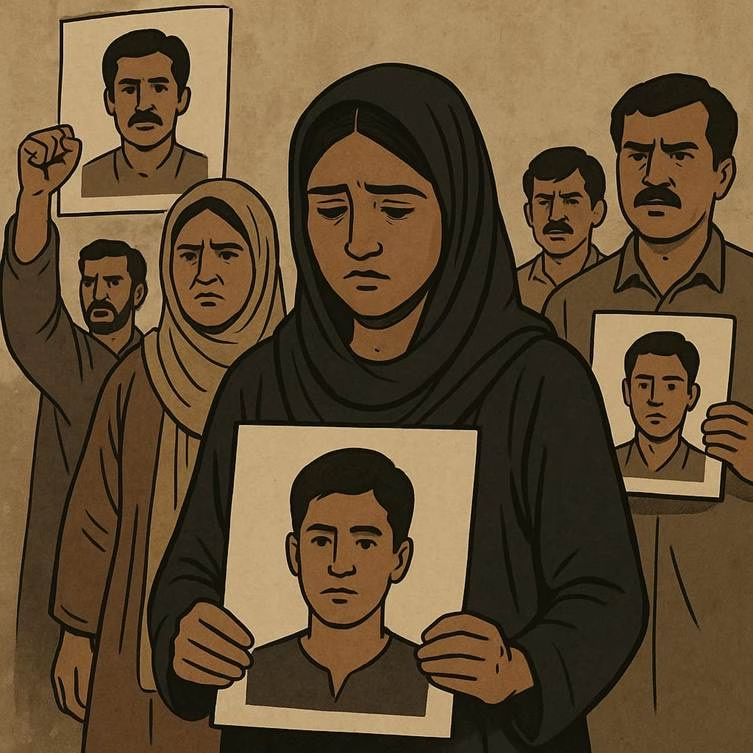
When London-based Baloch activists declared an independent “Democratic Republic of Balochistan” on May 14, it was a moment of déjà vu for those familiar with Kashmir’s turbulent 1990s.
The parallels are striking: a long-simmering independence movement, a surge in armed resistance, and a desperate appeal for international support — in this case particularly from India. Yet history suggests this path leads only to more bloodshed, fueling endless cycles of death and destruction, with no freedom in sight.
A Familiar Struggle
The Free Balochistan Movement, a group led by exiled leader Hyrbyair Marri, has formally severed ties with Pakistan, seeking global recognition. Since 1947 much like the Kashmiri political class, the Marris, like almost all Baloch sardars, have oscillated between resistance and occupying high government offices.
In 1947 Balochistan was a fractured political entity with competing sardars united only by their mutual hatred. Like Kashmir’s accession to India, the government of Pakistan obtained the consent from various sardars mostly under questionable circumstances aided by statecraft, duress and real or imagined inducements.
Marri’s renewed call for Indian backing mirrors the 1990s Kashmir insurgency, where thousands crossed into Pakistan for arms training, chanting revolutionary slogans like ‘Sarhad Par Ja Yein Gay… Kala Shankof (Kalashnikov) la yein gay.’
Kashmiris were welcomed with open arms by the official machinery and the people alike.
But Kashmir’s rebellion faltered and the public sentiment to welcome Kashmiris took a back seat.
This was not just due to Indian repression, but also because of infighting among militant groups, exacerbated by interference from both India and Pakistan. The Inter-Services Intelligence (ISI) played a particularly disruptive role, systematically eliminating or sidelining Kashmiri leaders who sought an independent path. Mirwaiz Moulvi Farooq, Majeed Dar, and Abdul Ghani Lone are just a few among the many who fell victim.
During Pervez Musharraf’s rule, even the most vocal proponent of Ilhaq-e-Pakistan, Syed Ali Shah Geelani, was sidelined as Pakistan sought to build new equations and alliances with India. At the time, the Pakistan Army even facilitated the killing of several key militant leaders—especially from Hizbul Mujahideen—by leaking their locations to Indian security agencies.
Among its several competing separatist leaders, often within the same family, the Baloch movement for azadi is treading the same perilous path. And if Kashmir’s history is any indication, the outcome will be tragically similar.
The Cycle of Insurgency and Repression
Pakistan’s heavy-handed tactics—enforced disappearances, extrajudicial killings, and economic marginalization—have fuelled mass support for Baloch militancy. As the military-led Pakistan has escalated attacks against Baloch political and human rights activists, amid growing civilian murders, the Balochistan Liberation Army (BLA) has mounted attacks killing dozens of security personnel. But Islamabad’s military dominance ensures no rebellion succeeds, even with reported external backing.
Complicating matters further, a portion of Balochistan lies under Iranian control. The Sunni-majority Sistan-o-Balochistan region faces similar repression from Iran’s Shia-dominated state apparatus. Even in the unlikely event that the BLA overcomes Pakistan’s military—and secures China’s tacit approval—Iran would never allow an independent Baloch state to emerge. Tehran’s influence in the region is undeniable; it has already eliminated several pro-independence Iranian-Baloch militants inside the territory of Pakistan.
Besides, Balochistan has at least 45 per cent of Pashtun population. While they have their own set of grievances against the state, they would find it increasingly difficult to negotiate within a proposed independent Balochistan that could marginalise them further.
Like in Pakistan, Balochs in Iran face a similar and unceasing onslaught. In a press release dated 1 May, the Free Balochistan Movement claimed that over the past two weeks, the Iranian government had hanged to death over “twenty-five innocent Baloch people from Iranian-occupied Balochistan … under false charges, fabricated crimes and labels of drug trafficking … without any fair trial or judicial proceedings”.
Kashmir’s experience proves that public pronouncements of a ‘government’ does not make any difference on the ground. The 1990 “Provisional Government” declared by the Jammu Kashmir Liberation Front (JKLF) under its mercurial chairman Amanullah Khan collapsed even before it could be formally ‘inaugurated’. The main reason was Khan’s one-sided vision and his total inability to rein in his own ambition to create some coherent political entity from a soup that was so glaringly disparate that it collapsed before it could be presented to the public.
Today, Balochistan faces the same question: Can scattered insurgents and competing groups of political class outlast a nuclear-armed state? The answer, I fear, is a resounding no.
The Perils of Foreign Intervention
Marri’s group is now openly clamouring for Indian support — a cynical and dangerous gamble. While India may sympathize, it is unlikely to risk direct confrontation with Pakistan. Since the nuclearisation of the region, such a scenario is but a drug-fuelled fantasy. And even if it did, ignoring China’s possible intervention to guard its strategic interests in the region cannot be ignored.
The Bangladesh Liberation War is often cited as a precedent, but the comparison is flawed. Bengali separatists succeeded due to geographic distance from West Pakistan and India’s direct military intervention—a scenario impossible to replicate in Kashmir or Balochistan today.
With both India and Pakistan armed with nuclear weapons, no external power will risk intervening on behalf of insurgents. The failure of recently enacted Operation Sindoor underscores this reality: despite nationalist posturing, India’s response was limited to hollow rhetoric and sensationalist media theatrics.
Kashmir’s history demonstrates that proxy wars only prolong suffering. Despite Pakistan’s vocal support for Kashmiri militants, the result has been decades of conflict with no liberation in sight. Today, Islamabad can offer little more than vague diplomatic platitudes on Kashmir or some proverbial song and dance through an ISPR jingle!
Is There Another Way?
At present, none seems viable. The harsh truth is that armed struggle cannot break Islamabad’s grip. If Baloch leaders seek concessions, they must shift focus toward building a unified political front—though such unity appears impossible at this stage. Moreover, over-reliance on India risks alienating potential sympathizers within Pakistan, further isolating the movement.
Kashmir’s post-2019 reality—marked by India’s political manoeuvres and Pakistan’s declining influence—proves that resistance without diplomacy and flexibility is doomed. Balochistan must learn from these mistakes and pursue pragmatic and achievable goals.
The Baloch declaration of independence is bold but lacks a coherent strategy. Without one, it risks becoming another footnote in the history of failed insurgencies. The road to self-determination demands more than slogans—it requires political pragmatism. Otherwise, Balochistan may share Kashmir’s fate: a land of shattered dreams and unending conflict.
Subscribe to Our Newsletter
Get the latest CounterCurrents updates delivered straight to your inbox.
- Murtaza Shibli is a British Kashmiri writer born in Srinagar.















































